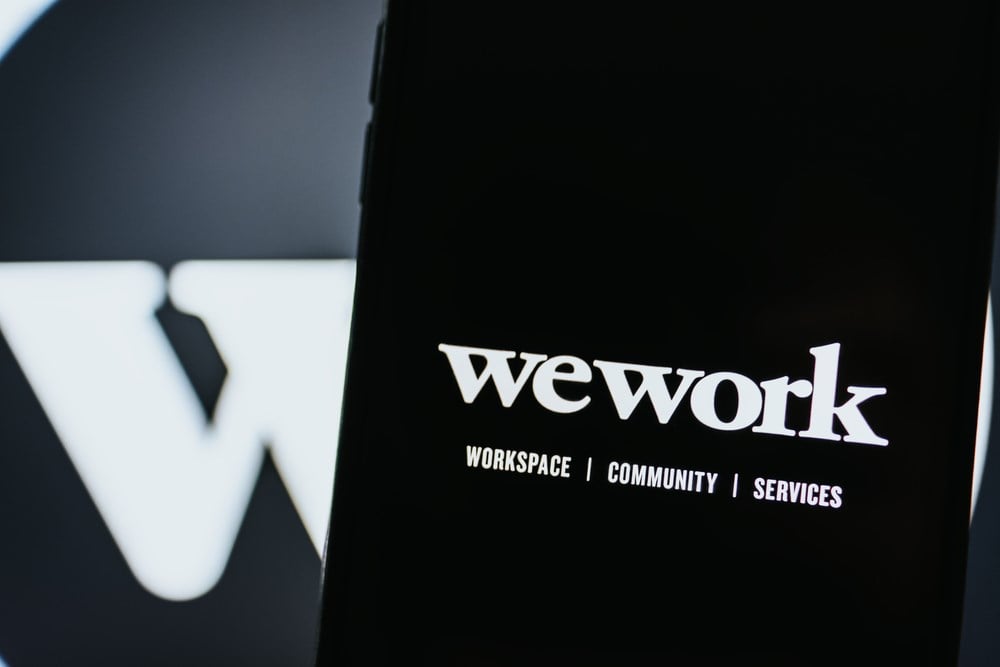
WeWork (NYSE: WE) has joined the ranks of companies achieving meme status, with its shares surging nearly 100% from Wednesday's lows, accompanied by significant trading volume. This surge in WeWork's stock is part of an emerging pattern where individual investors seem to gravitate towards companies teetering on the edge of bankruptcy.
A similar pattern has been observed recently with Tupperware Brands (NYSE: TUP) and Yellow (NASDAQ: YELL), as both companies experienced substantial price and volume increases, driven by retail investors aiming to rescue them from bankruptcy and exert pressure on short sellers.

As WeWork becomes the latest addition to the list of struggling companies captivating the attention and creativity of retail investors, the question arises: Can these individual investors potentially salvage the company or successfully squeeze the shorts?
WeWork Inc. is a global provider of flexible workspace solutions for individuals and businesses. Their offerings include workstations, private offices, customized floors, and amenities like private phone booths, internet, printers, mail handling, and cleaning services. They also offer additional services such as HR, payroll, remote workforce solutions, dedicated internet, and IT equipment co-location.
The Catalyst Behind The Recent Move
On Tuesday, August 8, WeWork reported its second-quarter results, raising substantial doubt about its future.
In the second quarter of 2023, consolidated revenue reached $844 million, marking a 4% YoY increase and a 7% YoY increase for the first half of 2023. The net loss for the same period was $(397) million, showing a YoY improvement of $238 million and an overall improvement of $443 million for the first half of 2023. Adjusted EBITDA was $(36) million, reflecting a YoY improvement of $98 million and an improvement of $281 million for the first half of 2023. Additionally, the consolidated physical occupancy rate rose to 72% by the end of the second quarter of 2023, up from 70% in the same period of 2022.
Interim CEO David Tolley said: “In a difficult operating environment, we have delivered solid year-over-year revenue growth and dramatic profitability improvements.”
However, after the earnings release, the company warned investors, expressing substantial doubt about its future existence, stating: “Substantial doubts exist about the company's ability to continue as a going concern.”
Following the announcement, the stock crashed by almost 40%. Fast forward to the week's close, and the stock was virtually unchanged on the week, relative to Wednesday’s crash, closing the week down just 8.9%, mainly thanks to retail traders.
Can WE Become A Meme Stock Success Story?
The short interest has been a large and significant ingredient of successful meme stocks in the past. WeWork currently has a 2.11% short interest, far less than recent meme stock movers, TUP (30.48%), and YELL (26.91%). So at first glance, there does not appear to be enough shorts to validate the “squeeze the shorts” narrative online by retail traders.

The short interest percentage can vary over time, particularly if the stock remains actively traded with consistently high volume and substantial price surges. On Thursday, the stock experienced notable trading volume and volatility as WE shares surged nearly 150% from the previous day's closing price. However, the momentum waned in the afternoon, resulting in a closing gain of almost 50% for the day. The trading volume reached 737 million shares, nearly thirteen times its average daily volume.
Should You Invest?
Presently, WeWork is enjoying popularity among retail traders aiming to pressure short sellers and capitalize on substantial price gains. Nonetheless, the eventual result might deviate significantly from this trajectory and narrative, as is frequently the case. Given the consistent trading volume and attention, additional volatility and price surges should be anticipated in the short term.
However, it's important to note that WeWork is unlikely to follow GameStop's (NYSE: GME) path and reach similar levels of market impact for several reasons. The Lack of short interest, current market environment, float size, and company fundamentals are just a few reasons to name.